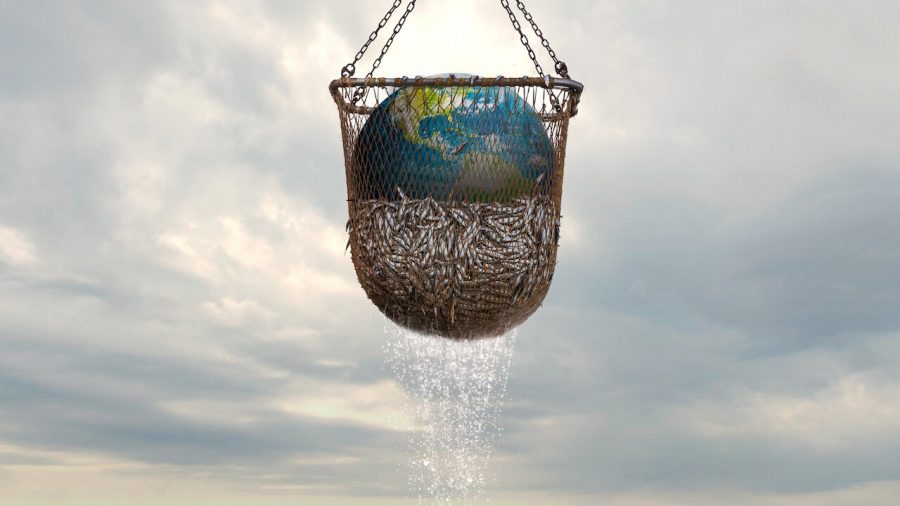REVIEW: ‘Seaspiracy’ provides shocking exposé through skillful filmmaking
Assistant Online Editor Srishti Kaushik writes that the Netflix documentary ‘Seaspiracy’ adequately uses information and cinematography to educate the audience about the negative impacts of the fishing industry on the underwater environment.
May 5, 2021
“Seaspiracy,” a Netflix documentary released this March, has recently become the center of worldwide attention due to its controversial and striking exposé of what the film claims is the greatest threat to our oceans: the fishing industry. The documentary is well-made and thorough in its investigations and will have a guaranteed impact on whoever watches it.
The film is led by British filmmaker Ali Tabrizi, an environmentalist who has been a part of similar projects, such as his film “Vegan 2018.” He introduces himself as someone who has always had a passion for the sea and began this whole project as he reconnected with the ocean and the problems surrounding it.
Tabrizi’s initial approaches and reactions to pollution and the degradation of marine life were very similar to mine as he participated in beach cleanups and swapped out plastic utensils and straws for reusable ones. After working as an investigator passionate about the environment, he took his efforts a step further and began to look more into the plastic pollution problem. The discoveries he made were shocking, and as the film progresses, everything falls into place as he delves deeper and deeper into what is happening to the ocean.
Like most documentaries, there were many harrowing statistics and graphs provided to accompany the blunt narration about the state of marine life that make you grimace. The crew also showed great cinematographic skills that can bring viewers to tears. What stood out to me were the efforts of the filmmakers to uncover the truth as they conducted dangerous interviews and collected footage that put their life at risk from people in mafia groups and governments. Tabrizi’s personal connection to the topic made the documentary all the more significant.
This film took me on an emotional rollercoaster and left me feeling guilty and awakened as to what was going on behind the scenes. Along with this came a feeling of helplessness about what I could do for the ocean and marine life.
Tabrizi had a clear answer to that question offering the solution that everyone should either limit or completely stop consuming seafood. This radical proposition has been part of a controversy surrounding the film for obvious reasons, with backlash from fishermen, corporations and seafood lovers.
“Seaspiracy” has also been under fire from experts and corporations that are a part of the conspiracy the film unraveled for “misleading information.” There are some factual errors used in the film but nothing that discounts the overall claims and that can’t be corrected with research. The fishing corporations’ accusations of “out-of-context” interviews and deceptive assertions feel out of pocket in a situation where they are clearly in the wrong.
A fair warning for those thinking of watching, this documentary spares no gruesome details and contains many scenes of brutal animal cruelty such as whale and dolphin slaughtering. It also covers dark topics such as modern slavery.
“Seaspiracy” is something new with its bold claims and accusations that stand up directly in opposition to positions of great power. I think I can speak for all viewers when I say that this film had me rethinking what I want on my plate. You might not be convinced to stop eating seafood by “Seaspiracy” but it’s worth giving it a watch to be more aware of what’s going on in our world, especially with something that has an everyday presence like seafood.










